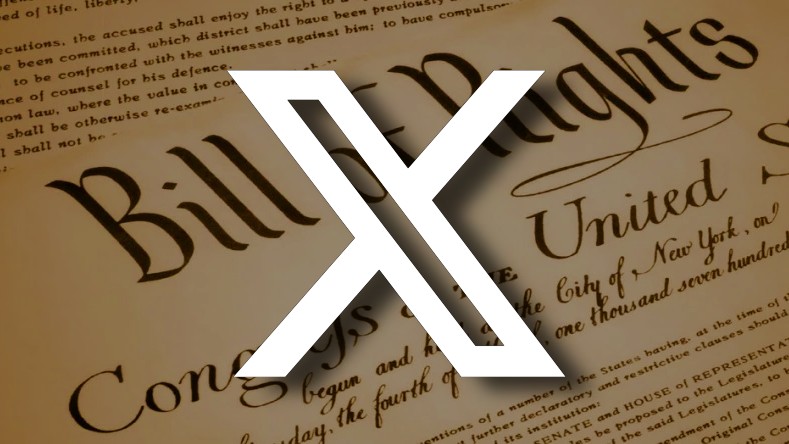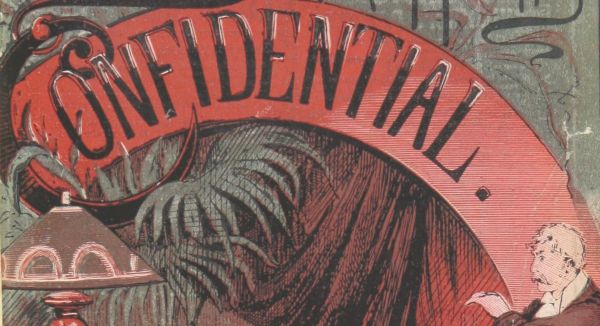On FOX 2 Detroit talking about the TikTok ban
Earlier today I enjoyed appearing live on Fox 2 Detroit talking about the TikTok ban. We discussed what the act that the House of Representatives passed says, what it would mean for social media users, and the free speech litigation that will no doubt follow if the bill passes in the Senate and the President signs it. It’s a very intriguing issue.
What does the “bill that could ban TikTok” actually say?

In addition to causing free speech concerns, the bill is troubling in the way it gives unchecked power to the Executive Branch.
Earlier this week the United States House of Representatives passed a bill that is being characterized as one that could ban TikTok. Styled as the Protecting Americans from Foreign Adversary Controlled Applications Act, the text of the bill calls TikTok and its owner ByteDance Ltd. by name and seeks to “protect the national security of the United States from the threat posed by foreign adversary controlled applications.”
What conduct would be prohibited?
The Act would make it unlawful for anyone to “distribute, maintain, or update” a “foreign adversary controlled application” within the United States. The Act specifically prohibits anyone from “carrying out” any such distribution, maintenance or updating via a “marketplace” (e.g., any app store) or by providing hosting services that would enable distribution, maintenance or updating of such an app. Interestingly, the ban does not so much directly prohibit ByteDance from making TikTok available, but would cause entities such as Apple and Google to be liable for making the app available for others to access, maintain and update the app.
What apps would be banned?
There are two ways one could find itself being a “foreign adversary controlled application” and thereby prohibited.
- The first is simply by being TikTok or any app provided by ByteDance or its successors.
- The second way – and perhaps the more concerning way because of its grant of great power to one person – is by being a “foreign adversary controlled application” that is “determined by the President to present a significant threat to the national security of the United States.” Though the President must first provide the public with notice of such determination and make a report to Congress on the specific national security concerns, there is ultimately no check on the President’s power to make this determination. For example, there is no provision in the statute saying that Congress could override the President’s determination.
Relatively insignificant apps, or apps with no social media component would not be covered by the ban. For example, to be a “covered company” under the statute, the app has to have more than one million monthly users in two of the three months prior to the time the President determines the app should be banned. And the statute specifically says that any site having a “primary purpose” of allowing users to post reviews is exempt from the ban.
When would the ban take effect?
TikTok would be banned 180 days after the date the President signs the bill. For any other app that the President would later decide to be a “foreign adversary controlled application,” it would be banned 180 days after the date the President makes that determination. The date of that determination would be after the public notice period and report to Congress discussed above.
What could TikTok do to avoid being banned?
It could undertake a “qualified divestiture” before the ban takes effect, i.e., within 180 days after the President signs the bill. Here is another point where one may be concerned about the great power given to the Executive Branch. A “qualified divestiture” would be situation in which the owner of the app sells off that portion of the business *and* the President determines two things: (1) that the app is no longer being controlled by a foreign adversary, and (2) there is no “operational relationship” between the United States operations of the company and the old company located in the foreign adversary company. In other words, the app could not avoid the ban by being owned by a United States entity but still share data with the foreign company and have the foreign company handle the algorithm.
What about users who would lose all their data?
The Act provides that the app being prohibited must provide users with “all the available data related to the account of such user,” if the user requests it, prior to the time the app becomes prohibited. That data would include all posts, photos and videos.
What penalties apply for violating the law?
The Attorney General is responsible for enforcing the law. (An individual could not sue and recover damages.) Anyone (most likely an app store) that violates the ban on distributing, maintaining or updating the app would face penalties of $5,000 x the number of users determined to access, maintain or update the app. Those damages could be astronomical – TikTok currently has 170 million users, so the damages would be $850,000,000,000. An app’s failure to provide data portability prior to being banned would cause it to be liable for $500 x the number of affected users.
How did Ohio’s efforts to regulate children’s access to social media violate the constitution?

Ohio passed a law called the Parental Notification by Social Media Operators Act which sought to require certain categories of online services to obtain parental consent before allowing any unemancipated child under the age of sixteen to register or create accounts with the service.
Plaintiff internet trade association – representing platforms including Google, Meta, X, Nextdoor, and Pinterest – sought a preliminary injunction that would prohibit the State’s attorney general from enforcing the law. Finding the law to be unconstitutional, the court granted the preliminary injunction.
Likelihood of success on the merits: First Amendment Free Speech
The court found that plaintiff was likely to succeed on its constitutional claims. Rejecting the State’s argument that the law sought only to regulate commerce (i.e., the contracts governing use of social media platforms) and not speech, it held that the statute was a restriction on speech, implicating the First Amendment. It held that the law was a content-based restriction because the social media features the statute singled out in defining which platforms were subject to the law – e.g., the ability to interact socially with others – were “inextricable from the content produced by those features.” And the law violated the rights of minors living in Ohio because it infringed on minors’ rights to both access and produce First Amendment protected speech.
Given these attributes of the law, the court applied strict scrutiny to the statute. The court held that the statute failed to pass strict scrutiny for several reasons. First, the Act was not narrowly tailored to address the specific harms identified by the State, such as protecting minors from oppressive contract terms with social media platforms. Instead of targeting the contract terms directly, the Act broadly regulated access to and dissemination of speech, making it under-inclusive in addressing the specific issue of contract terms and over-inclusive by imposing sweeping restrictions on speech. Second, while the State aimed to protect minors from mental health issues and sexual predation related to social media use, the Act’s approach of requiring parental consent for minors under sixteen to access all covered websites was an untargeted and blunt instrument, failing to directly address the nuanced risks posed by specific features of social media platforms. Finally, in attempting to bolster parental authority, the Act mirrored previously rejected arguments that imposing speech restrictions, subject to parental veto, was a legitimate means of aiding parental control, making it over-inclusive by enforcing broad speech restrictions rather than focusing on the interests of genuinely concerned parents.
Likelihood of success on the merits: Fourteenth Amendment Due Process
The statute violated the Due Process Clause of the Fourteenth Amendment because its vague language failed to provide clear notice to operators of online services about the conduct that was forbidden or required. The Act’s broad and undefined criteria for determining applicable websites, such as targeting children or being reasonably anticipated to be accessed by children, left operators uncertain about their legal obligations. The inclusion of an eleven-factor list intended to clarify applicability, which contained vague and subjective elements like “design elements” and “language,” further contributed to the lack of precise guidance. The Act’s exception for “established” and “widely recognized” media outlets without clear definitions for these terms introduced additional ambiguity, risking arbitrary enforcement. Despite the State highlighting less vague aspects of the Act and drawing parallels with the federal Children Online Privacy Protection Act of 1998 (COPPA), these did not alleviate the overall vagueness, particularly with the Act’s broad and subjective exceptions.
Irreparable harm and balancing of the equities
The court found that plaintiff’s members would face irreparable harm through non-recoverable compliance costs and the potential for civil liability if the Act were enforced, as these monetary harms could not be fully compensated. Moreover, the Act’s infringement on constitutional rights, including those protected under the First Amendment, constituted irreparable harm since the loss of such freedoms, even for short durations, is considered significant.
The balance of equities and the public interest did not favor enforcing a statute that potentially violated constitutional principles, as the enforcement of unconstitutional laws serves no legitimate public interest. The argument that the Act aimed to protect minors did not outweigh the importance of upholding constitutional rights, especially when the statute’s measures were not narrowly tailored to address specific harms. Therefore, the potential harm to plaintiff’s members and the broader implications for constitutional rights underscored the lack of public interest in enforcing this statute.
NetChoice, LLC v. Yost, 2024 WL 55904 (S.D. Ohio, February 12, 2024)
See also:
Required content moderation reporting does not violate X’s First Amendment rights

A federal court in California has upheld the constitutionality of the state’s Assembly Bill 587 (AB 587), which mandates social media companies to submit to the state attorney general semi-annual reports detailing their content moderation practices. This decision comes after X filed a lawsuit claiming the law violated the company’s First Amendment rights.
The underlying law
AB 587 requires social media companies to provide detailed accounts of their content moderation policies, particularly addressing issues like hate speech, extremism, disinformation, harassment, and foreign political interference. These “terms of service reports” are to be submitted to the state’s attorney general, aiming to increase transparency in how these platforms manage user content.
X’s challenge
X challenged this law, seeking to prevent its enforcement on the grounds that it was unconstitutional. The court, however, denied their motion for injunctive relief, finding that X failed to demonstrate a likelihood of success on the merits of its constitutional claims.
The court’s decision relied heavily on SCOTUS’s opinion in Zauderer v. Office of Disciplinary Counsel of Supreme Court of Ohio, 471 U.S. 626 (1985). Under the Zauderer case, for governmentally compelled commercial disclosure to be constitutionally permissible, the information must be purely factual and uncontroversial, not unduly burdensome, and reasonably related to a substantial government interest.
The court’s constitutional analysis
In applying these criteria, the court found that AB 587’s requirements fit within these constitutional boundaries. The reports, while compulsory, do not constitute commercial speech in the traditional sense, as they are not advertisements and carry no direct economic benefit for the social media companies. Despite this, the court followed the rationale of other circuits that have assessed similar requirements for social media disclosures.
The court determined that the content of the reports mandated by AB 587 is purely factual, requiring companies to outline their existing content moderation policies related to specified areas. The statistical data, if provided, represents objective information about the company’s actions. The court also found that the disclosures are uncontroversial, noting that the mere association with contentious topics does not render the reports themselves controversial. We know how controversial and political the regulation of “disinformation” can be.
Addressing the burden of these requirements, the court recognized that while the reporting may be demanding, it is not unjustifiably so under First Amendment considerations. X argued that the law would necessitate significant resources to monitor and report the required metrics. But the court noted that AB 587 does not obligate companies to adopt any specific content categories, nor does it impose burdens on speech itself, a crucial aspect under Zauderer’s analysis.
What this means
The court confirmed that AB 587’s reporting requirements are reasonably related to a substantial government interest. This interest lies in ensuring transparency in social media content moderation practices, enabling consumers to make informed choices about their engagement with news and information on these platforms.
The court’s decision is a significant step in addressing the complexities of regulating social media platforms, balancing the need for transparency with the constitutional rights of these digital entities. As the landscape of digital communication continues to evolve, this case may be a marker for how governments might approach the regulation of social media companies, particularly in the realm of content moderation.
X Corp. v. Bonta, 2023 WL 8948286 (E.D. Cal., December 28, 2023)
See also: Maryland Court of Appeals addresses important question of internet anonymity
California court decision strengthens Facebook’s ability to deplatform its users

Plaintiff used Facebook to advertise his business. Facebook kicked him off and would not let him advertise, based on alleged violations of Facebook’s Terms of Service. Plaintiff sued for breach of contract. The lower court dismissed the case so plaintiff sought review with the California appellate court. That court affirmed the dismissal.
The Terms of Service authorized the company to unilaterally “suspend or permanently disable access” to a user’s account if the company determined the user “clearly, seriously, or repeatedly breached” the company’s terms, policies, or community standards.
An ordinary reading of such a provision would lead one to think that Facebook would not be able to terminate an account unless certain conditions were met, namely, that there had been a clear, serious or repeated breach by the user. In other words, Facebook would be required to make such a finding before terminating the account.
But the court applied the provision much more broadly. So broadly, in fact, that one could say the notion of clear, serious, or repeated breach was irrelevant, superfluous language in the terms.
The court said: “Courts have held these terms impose no ‘affirmative obligations’ on the company.” Discussing a similar case involving Twitter’s terms of service, the court observed that platform was authorized to suspend or terminate accounts “for any or no reason.” Then the court noted that “[t]he same is true here.”
So, the court arrived at the conclusion that despite Facebook’s own terms – which would lead users to think that they wouldn’t be suspended unless there was a clear, serious or repeated breach – one can get deplatformed for any reason or no reason. The decision pretty much gives Facebook unmitigated free speech police powers.
Strachan v. Facebook, Inc., 2023 WL 8589937 (Cal. App. December 12, 2023)
Vaccine information censorship: Is Congressman Adam Schiff liable for the deplatforming of a medical organization?

One could characterize the recent case of Association of American Physicians & Surgeons, Inc. v. Schiff as addressing the issue of vaccine information censorship. The court considered whether letters written by Congressman Adam Schiff to Big Tech platforms, and statements he made in a Congressional hearing, caused the companies to deplatform a medical trade association and otherwise disfavor its content in search results.
The Association of American Physicians and Surgeons (AAPS) publishes online content that it characterizes not as “anti-vaccine,” but rather in favor of “informed consent based on disclosure of all relevant legal, medical, and economic information.” In 2019, California Representative Adam Schiff wrote letters to Google, Facebook, Amazon and Twitter, complaining about what he characterized as inaccurate information on vaccines, and requested answers to questions about what these platforms were doing to combat vaccine misinformation. In a later congressional hearing, he questioned whether Section 230 immunity for these sorts of technology platforms should be changed (a statement that AAPS characterized as a threat to these Big Tech platforms).
Thereafter, Amazon kicked AAPS out of its associates program, and AAPS’s web traffic to its vaccine information pages dropped (which it blames on Google and Facebook disfavoring the content). AAPS sued Schiff, seeking damages, claiming that his statements and actions caused these platforms to treat it disfavorably. The trial court dismissed the case on a motion to dismiss, finding that AAPS lacked standing. AAPS sought review with the District of Columbia Court of Appeals.
On appeal, the court affirmed the lower court’s dismissal for lack of standing. The court affirmed the dismissal primarily for two reasons. First, if found that AAPS had not sufficiently alleged that it suffered any injury in the form of an impairment of its ability to negotiate with Amazon. Secondly, the court found that any injury AAPS suffered from it being deplatformed and its content disfavored, as alleged by AAPS, was not sufficiently traceable to Schiff’s conduct.
Schiff had also argued that he could not be sued (i.e., that the court lacked subject matter jurisdiction) because his actions giving rise to the lawsuit were legislative acts and therefore protected by the Speech or Debate Clause of the Constitution. Because AAPS had not established that it had standing, the court did not need not reach the separate jurisdictional issue of immunity under this constitutional clause.
Association of American Physicians & Surgeons, Inc. v. Schiff, — F.4th —, 2022 WL 211219 (D.C. Cir. January 25, 2022)
Restraining order entered against website that encouraged contacting children of plaintiff’s employees
Plaintiff sued defendant (who was an unhappy customer of plaintiff) under the Lanham Act (for trademark infringement) and for defamation. Defendant had registered a domain name using plaintiff’s company name and had set up a website that, among other things, he used to impersonate plaintiff’s employees and provide information about employees’ family members, some of whom were minors.
Plaintiff moved for a temporary restraining order and the court granted the motion.
The Website
The website was structured and designed in a way that made it appear as though it was affiliated with plaintiff. For example, it included a copyright notice identifying plaintiff as the owner. It also included allegedly false statements about plaintiff. For example, it included the following quotation, which was attributed to plaintiff’s CEO:
Well of course we engage in bad faith tactics like delaying and denying our policy holders [sic] valid claims. How do you think me [sic], my key executive officers, and my board members stay so damn rich. [sic]
The court found that plaintiff had shown a likelihood of success on the merits of its claims.
Lanham Act Claim
It found that defendant used plaintiff’s marks for the purpose of confusing the public by creating a website that looked as though it was a part of plaintiff’s business operations. This was evidenced by, for example, the inclusion of a copyright notice on the website.
Defamation
On the defamation claim, the court found that the nature of the statements about plaintiff, plaintiff’s assertion that they were false, and the allegation that the statements were posted on the internet sufficed to satisfy the first two elements of a defamation claim, namely, that they were false and defamatory statements pertaining to the plaintiff and were unprivileged publications to a third party. The allegations in the complaint were also sufficient to indicate that defendant “negligently disregarded the falsity of the statements.”
Furthermore, the statements on the website concerned the way that plaintiff processed its insurance claims, which related to the business of the company and the profession of plaintiff’s employees who handled the processing of claims. Therefore, the final element was also satisfied.
First Amendment Limitations
The court’s limitation in the TRO is interesting to note. To the extent that plaintiff sought injunctive relief directed at defendant’s speech encouraging others to contact the company and its employees with complaints about the business, whether at the workplace or at home, or at public “ad hominem” comments, the court would not grant the emergency relief that was sought.
The court also would not prohibit defendant from publishing allegations that plaintiff had engaged in fraudulent or improper business practices, or from publishing the personally identifying information of plaintiff’s employees, officers, agents, and directors. Plaintiff’s submission failed to demonstrate to the court’s satisfaction how such injunctive relief would not unlawfully impair defendant’s First Amendment rights.
The did, however, enjoin defendant from encouraging others to contact the children and other family members of employees about plaintiff’s business practices because contact of that nature had the potential to cause irreparable emotional harm to those family members, who have no employment or professional relationship with defendant.
Symetra Life Ins. Co. v. Emerson, 2018 WL 6338723(D. Maine, Dec. 4, 2018)
Facebook did not violate user’s constitutional rights by suspending account for alleged spam

Plaintiff sued Facebook and several media companies (including CNN, PBS and NPR) after Facebook suspended his account for alleged spamming. Plaintiff had posted articles and comments in an effort to “set the record straight” regarding Kellyanne Conway’s comments on the “Bowling Green Massacre”. Plaintiff claimed, among other things, that Facebook and the other defendants violated the First, Fourth, Fifth, and Fourteenth Amendments.
The court granted defendants’ motion to dismiss for failure to state a claim. It observed the well-established principle that these provisions of the constitution only apply to governmental actors – and do not apply to private parties. Facebook and the other media defendants could not plausibly be considered governmental actors.
It also noted that efforts to apply the First Amendment to Facebook have consistently failed. See, for example, Forbes v. Facebook, Inc., 2016 WL 676396, at *2 (E.D.N.Y. Feb. 18, 2016) (finding that Facebook is not a state actor for Section 1983 First Amendment claim); and Young v. Facebook, Inc., 2010 WL 4269304, at *3 (N.D. Cal. Oct. 25, 2010) (holding that Facebook is not a state actor).
Shulman v. Facebook et al., 2017 WL 5129885 (D.N.J., November 6, 2017)
About the Author: Evan Brown is a Chicago technology and intellectual property attorney. Call Evan at (630) 362-7237, send email to ebrown [at] internetcases.com, or follow him on Twitter @internetcases. Read Evan’s other blog, UDRP Tracker, for information about domain name disputes.
Reports to advertisers about website content were protected speech

Plaintiff sued defendant in California state court for trade libel and other business torts over confidential reports that defendant provided to its customers (who advertised on plaintiff’s website) characterizing plaintiff’s websites as associated with copyright infringement and adult content.
Defendant moved to dismiss under California’s anti-SLAPP statute which, among other things, protects speech that is a matter of public concern. The trial court granted the anti-SLAPP motion. Plaintiff sought review. On appeal, the court affirmed the anti-SLAPP dismissal.
The court held that the communications concerning plaintiff’s websites (as being associated with intellectual property infringement or adult content) were matters of public concern, even though the communications were not public.
FilmOn.com v. DoubleVerify, Inc., 2017 WL 2807911 (Cal. Ct. App., June 29, 2017)
![]() About the Author: Evan Brown is a Chicago technology and intellectual property attorney. Call Evan at (630) 362-7237, send email to ebrown [at] internetcases.com, or follow him on Twitter @internetcases. Read Evan’s other blog, UDRP Tracker, for information about domain name disputes.
About the Author: Evan Brown is a Chicago technology and intellectual property attorney. Call Evan at (630) 362-7237, send email to ebrown [at] internetcases.com, or follow him on Twitter @internetcases. Read Evan’s other blog, UDRP Tracker, for information about domain name disputes.

It’s now the law of the land that come nine months from now, if any of the app stores make TikTok available or if any hosting provider lends services enabling TikTok, those companies will face substantial penalties.That is, unless TikTok’s owner ByteDance sells off the company to an entity that is not located in or controlled by anyone from Russia, Iran, North Korea or China.The version of the law that the President signed on April 24, 2024 is pretty much the same as the one the House of Representatives passed in March 2024.
The only difference is that if in nine months there is a transaction underway to sell off TikTok, the President can grant one 90-day extension for the sale to be completed.
No doubt we’re going to see some serious free speech litigation over this. Stay tuned.